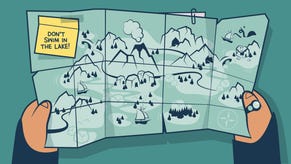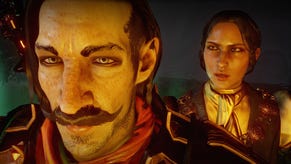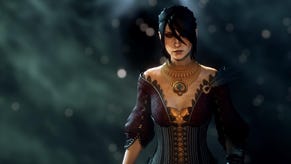Dragon Age: Origins
Drakes' fortune.
The voice cast does well, and the quality of dialogue lifts noticeably in its rare lighter moments. But perhaps it's just the sheer amount of time you spend paying active attention to these virtual people that allows them to work they way into your affections. Each companion has an approval rating for the player character, and manipulating these through conversations, decisions and gift-giving - eventually unlocking personal quests, romance and even sex, portrayed with all the sensuous passion of the database spreadsheet that underlies it all - is an engrossing game in itself. Although it can be clumsy and mechanical in the details, overall, evolving your relationship with the companions has a volatile unpredictability that makes for quite a credible simulation of human interaction.
It's the most convincingly organic part of the game's story, which doesn't so much branch as spread across a sprawling, tangled inland delta before narrowing back down to one or two defined outcomes. In fact, there's a huge amount of permutation and flexibility to how your own Dragon Age campaign matures, and it's happily devoid of heavy-handed moral dichotomy. But all this freedom is partially obscured.
Meaningful choices are lost in a near-infinite number of meaningless ones, consequences are only vaguely defined before the fact, and the cold machinations of the cast stir admiration for the game's clever, systematic plotting, but seldom emotion. Uninvolved, you make calls with your head and not your heart, and you never feel like you can escape the gravitational pull of the game's design the way you can in, for example, Bethesda's RPGs.
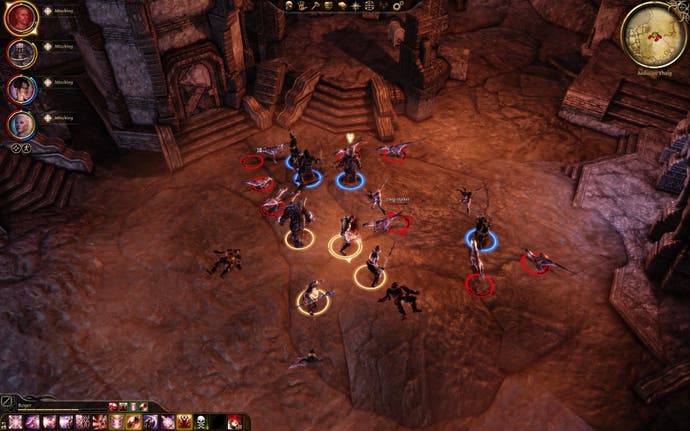
It's a shame, because there are fascinating alternate routes through Dragon Age to be discovered. Getting a sense of them halfway through your run through the game, you conceive a desire to play it again to explore its possibilities with more freedom and foreknowledge - and it's true that despite running 50 to 100 hours in length, this game has tremendous replay value.
But any desire to play it again is ultimately squashed, for many reasons which can be boiled down to one. Although the systems which make up Dragon Age's world are all interesting and well-realised - the companion interaction, the plotting, the character progression, the combat - the world itself is neither.
Side quests are perfunctory and unappealing filler, usually boiling down to a treasure hunt or a long explanation for a short scrap. (There is hope that downloadable content will serve the game better in the long run, with the Stone Prisoner launch pack offering a short but satisfying episode in a new location, some tasty items and an amusing new companion.) Dungeons are designed with care but mostly without imagination, only occasionally leavening the maze-like, monster-infested ruined temples with the odd puzzle or dimensional warp. The game's locations are cramped, dull and devoid of atmosphere, surrounded by invisible walls and fractured by loading times. There's no sense of a contiguous, believable world out there, which is one thing in a linear action game - quite another in a sprawling, supposedly franchise-founding RPG.
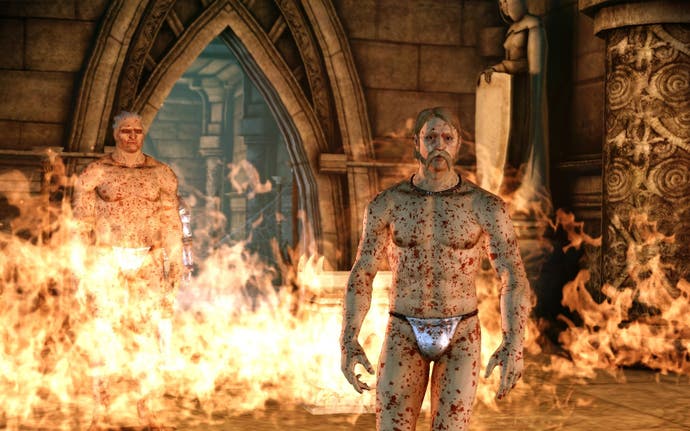
Things are better when BioWare settles into the intentionally dry Machiavellian world of the human capital Denerim (especially in the game's conniving climax) or the Circle of Magi. But when it's at its highest fantasy - especially in the dismally conventional and ugly woodland world of the Dalish Elves - Dragon Age is lowest on charm. The artwork across the board is polished but generic, with strong character designs giving way to bland architecture and lifeless landscapes.
There aren't many working in high fantasy who can lay claim to total originality. Nor is there anything inherently dull and derivative about elves, dragons and dwarves. But there's something missing from Dragon Age. There's no alternative to the eeriness of Elder Scrolls, the colourful exuberance of Warcraft, the gritty savagery of Warhammer, the classical lyricism of Tolkien.
In its desperation to infuse this setting with "maturity" - be it of the sober, political kind, or the game's painfully clumsy gore and sex - BioWare has forgotten the key ingredient of any fantasy: the fantastical. Without it, you're still left with a competent, often compelling, impressively detailed and immense RPG, but it's one that casts no spell.

